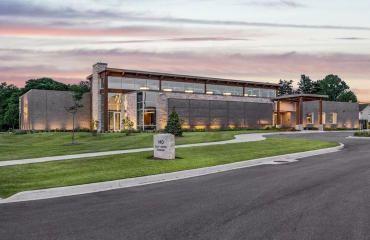Why Healthcare Workers Are at Their Breaking Point – Psychology Today
Many roads to contentment begin with self-forgiveness. It is among the most difficult—and most important—steps one can take. Verified by Psychology Today
Posted January 17, 2022 | Reviewed by Devon Frye
Back in December 2020, I wrote an article on Psychology Today about receiving my first COVID-19 vaccine while working on the frontlines of the pandemic. I was hopeful that the vaccination would be the beginning of the end. I could overcome the tiny thrill of terror that gripped my heart whenever I crossed the threshold of a patient’s room. I could devote more attention to taking care of my patients and their family members. Eventually, I thought, everything would return to normal.
Of course, that never happened. My hope slowly ebbed away as the pandemic became more polarized, and the surge of vitriol and viral variants seemed to ensure that there would be no end in sight. I watched in disgust as a politician compared mask mandates to the Holocaust. I shook my head as anonymous Internet commentators ridiculed unvaccinated individuals who had died from the disease. Still, I have been buoyed by the selflessness, bravery, and ingenuity among my colleagues in healthcare and the sciences.
I have since changed hospitals and finally entered into the specialty that I’ve aspired to since medical school, but I can’t escape the specter of the pandemic. Last month, the hospital’s intensive care unit asked our team to evaluate a patient who was younger than I was. His body had endured the full brunt of the virus, which, without the tempering effects of the vaccine, had ravaged his lungs. I never had a chance to talk to him in person, as he was already intubated by the time that I had joined his treatment team.
As I examined the patient’s body, bloated from intravenous fluids, I listened to the playlist of his favorite songs in the background. At that moment, I realized that he would probably never enjoy the sound of music again or take another breath of his own volition.
I called the primary team. I said, “You do know whatever I suggest probably won’t help?”
They replied, “We know, but he’s so young, and he has children. If there’s even the slightest chance that this could help, we want to do everything possible.”
The patient passed away two weeks later.
Since then, the situation in our hospital has become direr than ever. In Chicago, the percentage of available ICU beds dropped even lower than the worst of the Fall 2020 surge. Moreover, as we enter into the third year of the pandemic, health care workers are finding themselves at their mental and emotional nadir.
While milder than Delta, Omicron recently ripped through the public and the healthcare workforce. The Centers for Disease Health and Prevention responded by decreasing the recommended time for isolation from ten to five days, ostensibly to address inevitable staffing shortages. Still, this puts the wellness of healthcare workers—and by extension, our patients—at risk, as staff members who are asymptomatic but still shedding the virus may be transmitting the disease to their co-workers and patients. Furthermore, all across the country, hospital workers are also dealing with an increasing number of physical and verbal abuse from patients, all for trying to do their jobs in an increasingly stressful environment.
All the workplace stress, abuse, and deaths have their consequences. Research may lag behind real-time events, but a January 2022 cross-sectional survey published in the Journal of General Internal Medicine took a pulse of the mental wellness of healthcare workers in Spring 2020, after the first surge. Fourteen percent reported depression, 43 percent higher anxiety, 32 percent sleep disturbance, 22 percent post-traumatic stress symptoms, and 46 percent emotional exhaustion. Although it’s difficult to extrapolate this data to the fourth (or, depending on how you’re counting, the fifth) surge, suffice it to say that the healthcare workers are not doing well.
While I have been disappointed by politicians, pundits, some members of the public, and trusted institutions, I continue to remain awed by the resilience of our doctors, nurses, physician assistants, technicians, therapists, social workers, and respiratory therapists, among others. But I also know that we have collectively traversed far beyond our breaking point, and I worry about how the pandemic will impact our current and future generations of health care providers.
Since we are still within the throes of COVID-19, I won’t even begin to guess what might happen in the future, especially since the virus has thwarted most predictions. Still, I must continue to cling onto the hope that, that this, too, shall pass. It has to; otherwise, who will heal the healers?
References
“Healthcare Worker Mental Health After the Initial Peak of the COVID-19 Pandemic: a US Medical Center Cross-Sectional Survey,” J Gen Intern Med. 2022 Jan 6;1-8. doi: 10.1007/s11606-021-07251-0.
Yoo Jung Kim, M.D., is a physician at a major academic hospital in Chicago. She is the co-author of What Every Science Student Should Know.
Get the help you need from a therapist near you–a FREE service from Psychology Today.
Psychology Today © 2022 Sussex Publishers, LLC
Many roads to contentment begin with self-forgiveness. It is among the most difficult—and most important—steps one can take.




